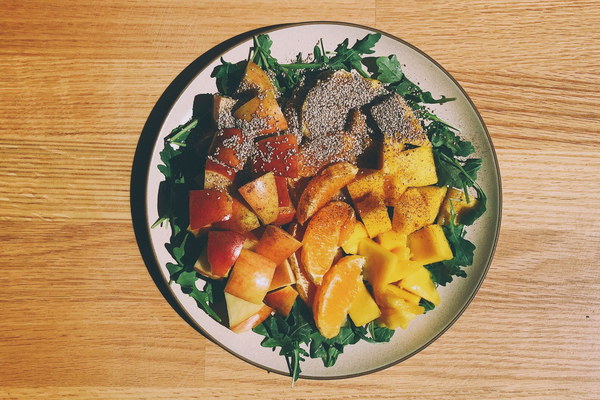Nourishing Yin Deficiency A Comprehensive Guide to Balancing Your Body's Energy
In traditional Chinese medicine (TCM), Yin represents the cooling, moistening, and calming aspects of the body's energy. When Yin is deficient, you may experience symptoms such as dry skin, constipation, irritability, and sleep disturbances. This article aims to provide a comprehensive guide on how to nourish and balance Yin in your body to improve overall health and well-being.
1. Understand the Causes of Yin Deficiency
Yin deficiency can result from various factors, including chronic stress, excessive heat, poor diet, and lack of sleep. To address the root cause, it's essential to identify the factors contributing to your Yin deficiency and make necessary lifestyle changes.
2. Embrace a Yin-Balancing Diet
A diet rich in Yin-nourishing foods can help balance your body's energy. Here are some examples:
- Vegetables: Leafy greens (spinach, kale), asparagus, cucumber, and zucchini.
- Fruits: Melon, watermelon, peaches, and pears.
- Grains: Quinoa, brown rice, and barley.
- Legumes: Black beans, lentils, and mung beans.
- Proteins: Fish, poultry, and lean meats.
- Nuts and Seeds: Almonds, walnuts, flaxseeds, and chia seeds.
- Herbs and Spices: Ginger, cinnamon, and licorice root.
Avoid or minimize the consumption of foods that can exacerbate Yin deficiency, such as caffeine, alcohol, spicy foods, and excessive sugar.
3. Incorporate Yin-Balancing Exercises

Yin yoga and Tai Chi are excellent examples of gentle, yet effective exercises that can help balance your body's Yin energy. These practices focus on slow, mindful movements, deep breathing, and stretching to promote relaxation and calmness.
4. Prioritize Rest and Sleep
Adequate rest and sleep are crucial for replenishing Yin energy. Aim for 7-9 hours of quality sleep each night, and establish a relaxing bedtime routine to help you unwind.
5. Manage Stress
Chronic stress can deplete Yin energy, making it essential to find effective stress management techniques. Consider practices such as meditation, deep breathing exercises, and mindfulness to help you stay grounded and balanced.
6. Hydrate Properly
Water is the essence of Yin in TCM, and adequate hydration is essential for maintaining a healthy Yin balance. Aim to drink at least 8 glasses of water per day and consider herbal teas that are known to nourish Yin, such as chamomile, lavender, or hawthorn.
7. Seek Professional Advice
If you suspect you have a Yin deficiency, it's best to consult with a qualified TCM practitioner. They can provide personalized advice and treatment options, such as herbal remedies, acupuncture, and dietary guidance.
By following these steps, you can effectively nourish and balance your body's Yin energy, leading to improved health and well-being. Remember that it takes time and consistency to see the benefits of these practices, so be patient and stay committed to your journey towards a balanced life.









